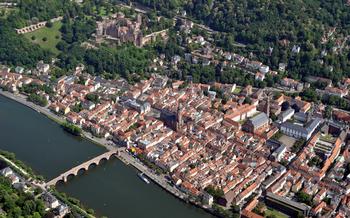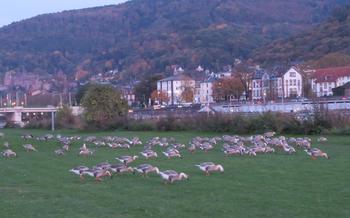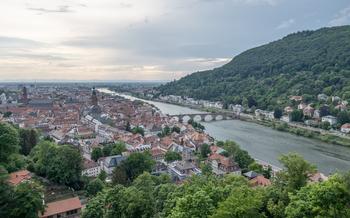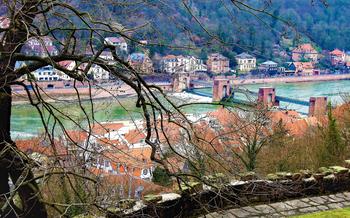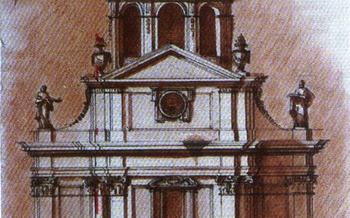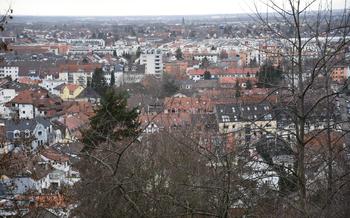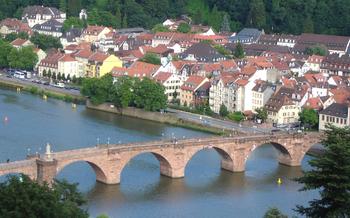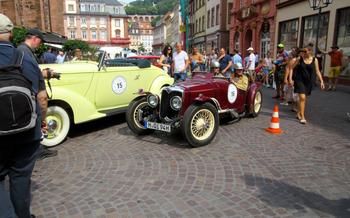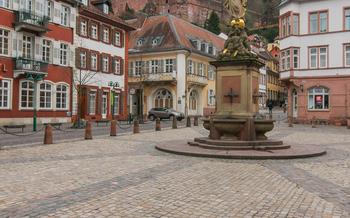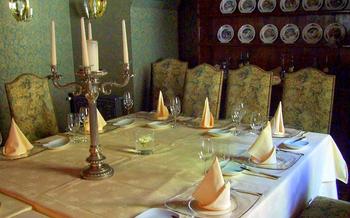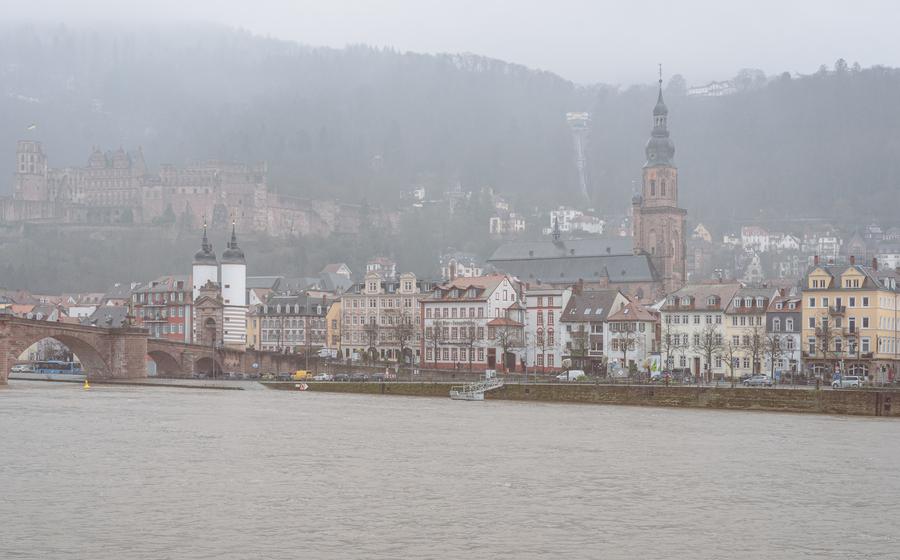
Church of the Holy Spirit, Heidelberg
- The Church of the Holy Spirit: A Stunning Masterpiece
- A Journey Through Time: Exploring the Church's History
- Unveiling the Architectural Marvel
- Stepping Inside: A Realm of Beauty and Serenity
- The Altar: A Work of Art and Devotion
- Stained-Glass Windows: A Symphony of Light
- A Place of Worship and Community
- Cultural Significance and Recognition
- The Church's Impact on Art and Architecture
- Visiting the Church of the Holy Spirit
- Highlights for Visitors: Creating Unforgettable Experiences
- Tips for Photography Enthusiasts
- Exploring the Neighborhood: Hidden Gems
- Local Customs and Etiquette
- Insider Tip: Discovering a Hidden Treasure
The Church of the Holy Spirit: A Stunning Masterpiece
The Church of the Holy Spirit, one of the most captivating landmarks in Heidelberg, Germany, stands as a testament to the city's rich history and architectural prowess. Built in the 14th century, this awe-inspiring Gothic masterpiece has witnessed centuries of religious, cultural, and societal transformations. Its stunning facade, intricate carvings, and soaring bell tower have made it a beloved symbol of the city, attracting visitors from around the globe.
The church's significance extends beyond its architectural beauty. It has served as a spiritual center for the community, hosting regular religious services, events, and gatherings. The church has also been instrumental in various social and charitable initiatives, fostering a sense of unity and belonging among the congregation and the wider community.
Inside the church, visitors are greeted by a breathtaking display of art and devotion. The nave, with its vaulted ceilings and intricate carvings, creates an atmosphere of awe and reverence. The stunning altarpiece, depicting scenes from the Bible, is a masterpiece in itself, captivating visitors with its intricate carvings, vibrant colors, and gold leaf embellishments.
The Church of the Holy Spirit is not merely a religious edifice; it is a living testament to the power of faith, art, and community. It continues to inspire and captivate visitors with its beauty, history, and cultural significance, making it an essential destination for anyone seeking to delve into the heart and soul of Heidelberg.
A Journey Through Time: Exploring the Church's History
Origins and Construction in the 14th Century
The Church of the Holy Spirit in Heidelberg, Germany, traces its roots back to the 14th century. Its construction began in 1398 under the patronage of Ruprecht I, Elector Palatine, and was completed around 15The church was built in the Late Gothic style, a prevalent architectural style in Europe during that period. It was designed to serve as a spiritual center for the city of Heidelberg and its surrounding communities.
The Church's Transformation During the Reformation
During the 16th century, Heidelberg became a significant center of the Protestant Reformation movement. The church underwent a transformation under the influence of Martin Luther's teachings. In 1563, it officially became a Protestant church, leading to changes in its interior decoration and liturgical practices. The church's role as a spiritual hub continued to expand, serving the Protestant community of Heidelberg.
Its Resilience Through Wars and Conflicts
The Church of the Holy Spirit has endured numerous wars and conflicts throughout its history. During the Thirty Years' War (1618-1648), the church was severely damaged but later underwent extensive repairs and renovations. It also survived the destruction of Heidelberg Castle during the Palatine Succession War in 169The church's resilience and ability to withstand these challenges are a testament to its enduring significance.
Restoration Efforts and the Church's Current Status
In the 19th century, the church underwent a major restoration project led by architect Ludwig Becker. This project aimed to restore the church to its original Gothic splendor and involved repairs to the exterior, interior, and stained-glass windows. The church continues to be meticulously maintained and preserved, ensuring its legacy for future generations. Today, the Church of the Holy Spirit stands as a remarkable example of Gothic architecture and a symbol of Heidelberg's rich history and cultural heritage.
Unveiling the Architectural Marvel
The Church of the Holy Spirit stands as a testament to the architectural prowess of the Gothic era. Its design is a harmonious blend of various Gothic elements, creating a visually stunning masterpiece. The imposing facade captivates visitors with its intricate details, showcasing the skill and craftsmanship of the medieval builders.
The church's most striking feature is its soaring bell tower, a symbol of its dominance over the Heidelberg skyline. Ascending the tower rewards visitors with breathtaking panoramic views of the city, the Neckar River, and the surrounding hills.
The harmonious blend of architectural styles is evident throughout the church. The Gothic elements, such as the pointed arches, ribbed vaults, and flying buttresses, are seamlessly integrated with Romanesque and Renaissance influences. This eclectic mix creates a unique and visually appealing aesthetic that sets the Church of the Holy Spirit apart from other religious structures in the region.
Stepping Inside: A Realm of Beauty and Serenity
Venturing inside the Church of the Holy Spirit is like stepping into a realm of awe-inspiring beauty and serene tranquility. The nave, with its soaring vaulted ceilings, creates a sense of spaciousness and grandeur. The intricate carvings and sculptures that adorn the interior walls and columns showcase the exceptional craftsmanship of medieval artisans.
The stunning altarpiece, a masterpiece of religious art, takes center stage in the chancel. Its central panel depicts the crucifixion of Jesus Christ, surrounded by intricately carved scenes from the Bible. The vibrant colors and gold leaf embellishments add to the altarpiece's majesty, making it a focal point of the church's interior.
The vibrant stained-glass windows, casting colorful hues throughout the space, contribute to the church's ethereal ambiance. The windows depict biblical scenes and stories, inviting visitors to contemplate the narratives of faith and redemption. The changing light throughout the day transforms the interior, creating a dynamic interplay of colors and shadows.
The harmonious blend of architectural elements, from the Gothic arches to the intricate carvings, creates a cohesive and visually stunning space. Every corner of the church reveals a new detail, inviting visitors to explore and appreciate the artistry and devotion that went into its creation.
The Altar: A Work of Art and Devotion
The Church of the Holy Spirit is home to a breathtaking altarpiece, a masterpiece of art and devotion that captivates the hearts and minds of visitors. Intricately carved from wood and adorned with gold leaf, the altarpiece is a testament to the skill and artistry of medieval craftsmen. Its central panel depicts the crucifixion of Jesus Christ, a poignant reminder of the sacrifice and redemption that lie at the heart of the Christian faith. The vibrant colors and intricate details of the carvings bring the biblical scene to life, evoking a sense of awe and reverence within the church. The altarpiece serves as a focal point for religious ceremonies, a symbol of faith and devotion that has stood the test of time. For the community, it is a sacred object that holds deep spiritual significance, a tangible reminder of God's presence and love.
Stained-Glass Windows: A Symphony of Light
The Church of the Holy Spirit is renowned for its exquisite stained-glass windows, which adorn the interior with vibrant colors and intricate designs. These windows, crafted by skilled artisans, depict biblical scenes and stories, adding to the church's spiritual ambiance.
The windows' vibrant colors, achieved through the use of various hues of glass, create a mesmerizing effect as sunlight filters through them. The intricate designs, featuring biblical figures, symbols, and narratives, showcase the artistic prowess of the medieval craftsmen.
As the day progresses, the changing light casts different hues on the interior, transforming the atmosphere of the church. The windows come alive, casting colorful shadows and illuminating the nave with a warm glow.
These stained-glass masterpieces not only enhance the beauty of the church but also serve as a reminder of the rich history and religious heritage of Heidelberg. Visitors can spend hours admiring the intricate details and symbolism of each window, gaining a deeper understanding of the biblical stories they depict.
The stained-glass windows of the Church of the Holy Spirit are a testament to the enduring power of art and faith. They continue to inspire and captivate visitors, leaving a lasting impression of the church's spiritual grandeur.
A Place of Worship and Community
The Church of the Holy Spirit stands as a vital spiritual center for the community of Heidelberg. Its doors are open to all, offering a place of worship, reflection, and connection. Regular religious services, including masses, prayers, and special ceremonies, are held in the church, bringing together the congregation to celebrate their faith and seek spiritual guidance.
Beyond its religious significance, the church also plays an active role in social and charitable activities, demonstrating its commitment to the well-being of the community. It organizes events, workshops, and initiatives aimed at supporting those in need, fostering a sense of unity and compassion among its members. Through these activities, the church creates a welcoming and inclusive environment where individuals can find solace, support, and a sense of belonging.
Cultural Significance and Recognition
The Church of the Holy Spirit stands as a testament to Heidelberg's rich cultural heritage, earning its designation as a UNESCO World Heritage Site. This prestigious recognition acknowledges the church's outstanding universal value and its contribution to the world's cultural legacy. The church's inclusion in various cultural and historical tours further highlights its significance, attracting visitors from around the globe. As a symbol of religious devotion and architectural prowess, the Church of the Holy Spirit plays a vital role in promoting religious tourism and cultural exchange. Its recognition and appreciation by visitors worldwide solidify its status as a cultural treasure of immense importance.
The Church's Impact on Art and Architecture
The Church of the Holy Spirit has played an influential role in the development of Gothic architecture. Its unique design and intricate details have inspired artists and craftsmen throughout the centuries. The church's soaring bell tower, intricate carvings, and stunning stained-glass windows have become iconic elements of Gothic architecture, influencing countless other religious and secular buildings.
The church has also served as a valuable repository of medieval art and craftsmanship. Its interior is adorned with exquisite sculptures, paintings, and decorative elements that provide a glimpse into the artistic and cultural achievements of the Middle Ages. The church's well-preserved condition and its designation as a UNESCO World Heritage Site have ensured that these treasures continue to be preserved and showcased for future generations.
Beyond its architectural and artistic significance, the Church of the Holy Spirit has also contributed to the cultural heritage and identity of Heidelberg. The church's enduring presence and its role as a spiritual and cultural center have helped to shape the city's unique character. It remains a symbol of Heidelberg's rich history and a testament to the enduring power of faith and art.
Visiting the Church of the Holy Spirit
Practical Information
Visiting the Church of the Holy Spirit is a must-do for any traveler interested in history, architecture, and spirituality. Located in the heart of Heidelberg's Old Town, the church is easily accessible by foot, public transportation, or car.
The church is open to visitors daily, with varying hours depending on the season. Admission is free, allowing everyone to experience the beauty and significance of this historic landmark.
For a more in-depth experience, guided tours are available, providing visitors with insights into the church's history, architecture, and cultural importance. Guided tours are conducted in various languages, ensuring that visitors from all over the world can appreciate the church's grandeur.
The church is equipped with accessibility features, including ramps and elevators, making it accessible to visitors with disabilities.
Whether you choose to explore the church independently or with a guided tour, the Church of the Holy Spirit offers a memorable and enriching experience that will leave a lasting impression.
Highlights for Visitors: Creating Unforgettable Experiences
Visiting the Church of the Holy Spirit offers an array of unforgettable experiences that leave a lasting impression on visitors. One of the most profound experiences is attending a religious service or concert within the church's hallowed walls. The atmosphere is charged with spirituality as the congregation gathers to worship or listen to enchanting music that reverberates through the grand space.
Another highlight is the opportunity to ascend the bell tower, where visitors are rewarded with breathtaking panoramic views of Heidelberg and its surroundings. The climb up the winding staircase offers a unique perspective of the church's architecture and provides a glimpse into its hidden corners. Once at the top, visitors can marvel at the intricate details of the bell tower and capture stunning photographs of the city's skyline.
For those seeking a deeper understanding of the church's history and significance, guided tours are available. These tours provide insights into the church's construction, its role during the Reformation, and its remarkable resilience throughout the centuries. Visitors can learn about the church's architectural features, its stunning interior, and the stories behind the artwork and stained-glass windows.
Whether attending a religious service, climbing the bell tower, or embarking on a guided tour, the Church of the Holy Spirit offers a multitude of ways for visitors to create unforgettable experiences that will stay with them long after their visit.
Tips for Photography Enthusiasts
The Church of the Holy Spirit presents a plethora of opportunities for photography enthusiasts to capture its captivating beauty. The church's exterior grandeur demands a wide-angle lens to encompass its imposing facade and intricate details. Zoom in to capture the delicate carvings and sculptures that adorn the exterior, showcasing the exceptional craftsmanship of its creators.
Inside the church, the vibrant stained-glass windows are a photographer's dream. The play of natural light filtering through the colorful glass creates a mesmerizing spectacle, transforming the interior into a kaleidoscope of colors. Experiment with different angles and perspectives to capture the windows' intricate designs and the way they illuminate the church's interior.
Tripods are highly recommended to ensure sharp and steady shots, especially when capturing the church's soaring bell tower. The tower offers breathtaking panoramic views of Heidelberg and the surrounding countryside, making it a must-visit for photographers seeking a unique perspective. Remember to arrive early or stay late to capture the golden hues of sunrise or sunset, which cast a magical glow on the church and its surroundings.
Exploring the Neighborhood: Hidden Gems
Venturing beyond the church, visitors can immerse themselves in the charm and history of Heidelberg's Old Town. Cobblestone streets lead to picturesque squares, lined with colorful buildings and bustling cafes. Historical landmarks, such as the Old Town Hall and the Karl Theodor Bridge, stand as testaments to the city's rich past.
A short walk from the church brings visitors to Heidelberg Castle, perched atop a hill overlooking the city. This magnificent castle, with its imposing walls and towers, offers breathtaking panoramic views of the Neckar Valley. Within the castle grounds, visitors can explore the ruins of the former royal palace, stroll through the lush gardens, and learn about the castle's fascinating history.
For a tranquil escape, visitors can amble along the banks of the Neckar River. The Philosopher's Walk, a scenic path along the river, invites visitors to stroll, relax, and soak in the beauty of the natural surroundings. Along the way, they can admire the picturesque views of the river, the Old Town, and the hills beyond.
Heidelberg's culinary scene is another highlight, offering a diverse range of restaurants and cafes to satisfy every palate. From traditional German cuisine to international flavors, visitors can indulge in delicious meals while enjoying the vibrant atmosphere of the city.
Local Customs and Etiquette
When visiting the Church of the Holy Spirit, it is important to be respectful of the sacred atmosphere and observe local customs and etiquette. During religious services, maintain silence and refrain from talking or disturbing others. Dress appropriately, avoiding revealing or casual attire. Follow local customs and traditions related to religious practices, such as standing or kneeling during certain parts of the service. Engage with the local community with politeness and cultural sensitivity, respecting their beliefs and practices. By observing these customs, you will not only show respect for the church and its community but also enhance your overall experience and understanding of the local culture.
Insider Tip: Discovering a Hidden Treasure
Beneath the Church of the Holy Spirit lies a hidden treasure—the crypt. Descend into this atmospheric space to uncover the secrets of the church's past. The crypt houses an ossuary, a repository for ancient bones and artifacts that tell tales of Heidelberg's rich history. Explore this sacred space and discover the stories and legends that have been passed down through generations. The crypt offers a unique perspective on the church's significance and provides a glimpse into the lives of those who have come before us. Prepare to be captivated by the mysteries and hidden treasures that await you in the depths of the Church of the Holy Spirit.
